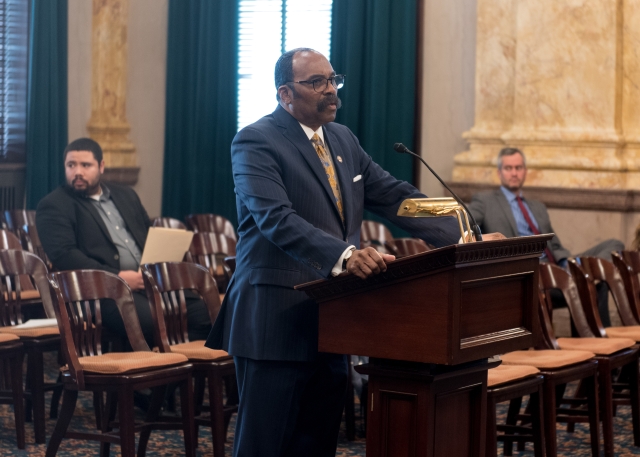Thomas and Craig Introduce $15 Minimum Wage Bill
March 6, 2019
Hearcel F. Craig News

Today, state Senators Cecil Thomas (D-Cincinnati) and Hearcel Craig (D-Columbus) introduced legislation to incrementally raise Ohio’s minimum wage to $15 per hour.
“We have an obligation to make life better for the people in our state and that includes providing living wages,” said Senator Thomas. “This increase to the minimum wage will help workers and their families have a better life. And when people have more money, it also benefits the local economy from increased spending in the community.”
“It’s long overdue that working Ohioans get a raise,” said Senator Craig. “We are not keeping up with inflation and workers are actually making less per hour than they did decades ago. By introducing $15 an hour gradually, we are ensuring full-time workers can provide for their families with a livable wage that offers more opportunity to improve the quality of their lives.”
The current minimum wage in Ohio is $8.55 per hour. This legislation would increase it to $12.00 per hour starting in January 2020 and make yearly increases of $1.00 per hour until 2023. After that, the minimum wage will increase every year to keep pace with inflation, as required by the Ohio constitution.
Representative Bridget Kelly (D-Cincinnati) recently introduced companion legislation in the Ohio House.
The current minimum wage leaves a full-time worker (40 hours per week) in Ohio about $3,000 below the federal poverty line if they are supporting a family of three. According to the National Low Income Housing Coalition, Ohioans need to earn a minimum of $15.25 an hour to be able to rent a modest two-bedroom home without spending more than 30% of their income on housing.
Twenty-nine states have laws mandating higher minimum wages than the $7.25 federal minimum wage, which has not changed since 2009. In contrast, the Ohio General Assembly in 2016 prohibited local municipalities from imposing minimum wages higher than the statewide minimum wage.



